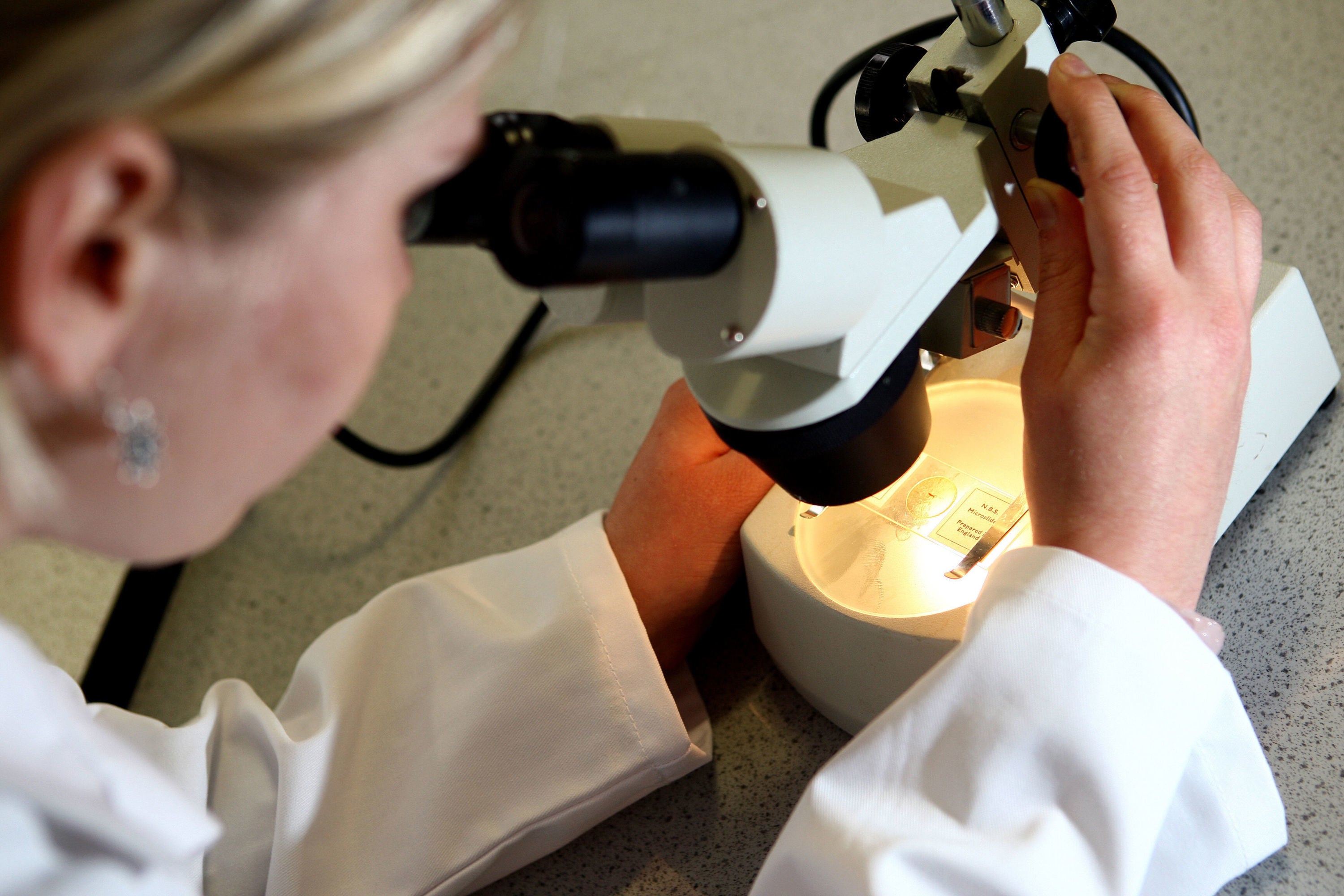New ovarian cancer treatment shrinks tumours in nearly half of patients in trial, results show
Study could herald ‘significant advance’ in treating advanced form of disease

Your support helps us to tell the story
This election is still a dead heat, according to most polls. In a fight with such wafer-thin margins, we need reporters on the ground talking to the people Trump and Harris are courting. Your support allows us to keep sending journalists to the story.
The Independent is trusted by 27 million Americans from across the entire political spectrum every month. Unlike many other quality news outlets, we choose not to lock you out of our reporting and analysis with paywalls. But quality journalism must still be paid for.
Help us keep bring these critical stories to light. Your support makes all the difference.
A new treatment for an advanced form of ovarian cancer is "highly effective" at shrinking tumours, according to researchers.
The combination of the drugs VS-6766 and defactinib resulted in a significant response in 11 out of 24 patients (46 per cent) during a small-scale phase one trial.
It performed even better in patients with tumours driven by the KRAS mutation, with 64 per cent of patients responding to the treatment.
Researchers said they were "delighted" with the outcome and suggested it could mean a "significant advance" in treatment if the results are replicated in larger trials.
The study was led by a team at the Institute of Cancer Research (ICR) in London and The Royal Marsden NHS Foundation Trust.
It involved patients with low-grade serous ovarian cancer, which is less common and tends to develop at a younger age.
The ICR said less than 13 per cent of patients with this form of the disease respond to chemotherapy and less than 14 per cent respond to hormone therapy.
Patients taking part in the trial - aged between 31 and 75 - lived an average of 23 months before their cancer progressed.
Professor Kristian Helin, chief executive of the ICR, said: "This study has turned a deep understanding of how cancer fuels its growth and develops resistance into a highly targeted treatment for patients who currently have few treatment options.
"Scientists have been working to develop treatments that can effectively target KRAS-driven cancers for decades.
"It's fantastic that early trials indicate this treatment is highly effective for this patient group, and that a phase two trial has already begun."
Dr Susana Banerjee, also from the ICR and consultant medical oncologist and research lead at The Royal Marsden's gynaecology unit, said: "If these findings are confirmed in larger trials, they'll represent a significant advance in low-grade serous ovarian cancer treatment."
Researchers said the combination treatment worked in patients who had already received an MEK inhibitor before the study.
An MEK inhibitor is a drug which can cause tumours to shrink but tends to stop working as tumours develop resistance to treatment.
Dr Banerjee added: "I am delighted that this drug combination has worked so well in a group of patients who are in urgent need of new treatments, including those who have previously been treated with a MEK inhibitor.
"We're very hopeful that this could become the standard of care for women with low-grade serous ovarian cancer."
The results were presented at the 2021 European Society for Medical Oncology Congress.
Additional reporting by Press Association
Subscribe to Independent Premium to bookmark this article
Want to bookmark your favourite articles and stories to read or reference later? Start your Independent Premium subscription today.



Join our commenting forum
Join thought-provoking conversations, follow other Independent readers and see their replies
Comments